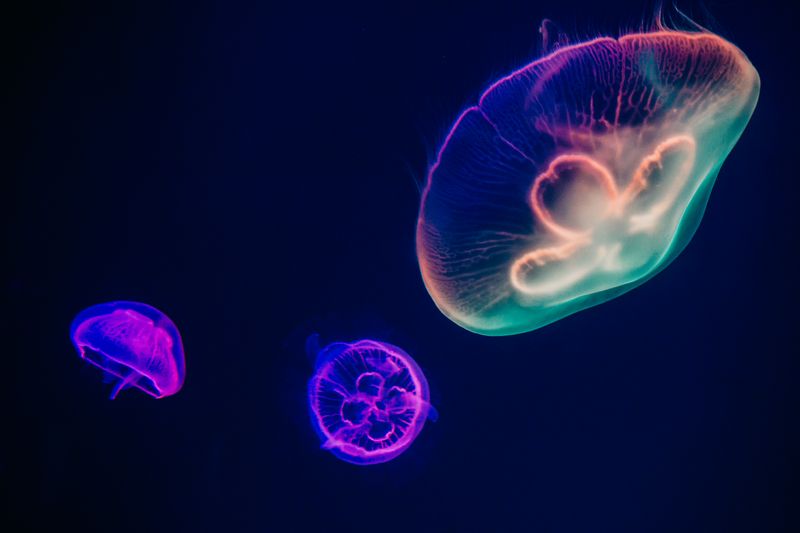Why do whales beach themselves? Latest tragedy raises questions
Introduction
Whale strandings, where these majestic marine creatures end up ashore on coastal areas, are devastating events that continue to baffle scientists and raise important questions about the behavior and welfare of these animals. The recent tragedy, which saw a pod of whales beaching themselves, has once again ignited discussions surrounding the factors that lead to such occurrences. This article explores the possible reasons behind whale strandings and delves into the ongoing efforts towards conservation and understanding of these incredible creatures.
Understanding Whale Strandings
Whale strandings refer to the phenomenon where whales, usually in groups or pods, unexpectedly find themselves stranded on beaches and unable to return to the open ocean. This perplexing behavior has been observed in various species of whales, such as humpback whales, sperm whales, and pilot whales.
Possible Factors Contributing to Whale Strandings
Scientists have proposed several theories to explain why whales beach themselves. While the precise reasons can vary depending on the species and circumstances, the following factors are often considered:
1. Noise Pollution
Whales heavily rely on sound for communication, navigation, and hunting. Increased levels of underwater noise pollution, caused by human activities such as shipping, seismic surveys, and military exercises, can disrupt their acoustic environment. This disruption may disorientate or confuse whales, leading to them straying off course and ultimately ending up on beaches.
2. Illness or Injuries
Whales that are sick, injured, or debilitated may exhibit behaviors that result in beaching. In some cases, these animals may be attempting to escape from predators or extreme environmental conditions. Additionally, certain diseases or conditions affecting their sensory systems can impair their ability to navigate, making them more vulnerable to becoming stranded.
3. Social Dynamics
Whales are highly social animals that live in intricate family structures. It is theorized that a strong social bond can drive a healthy member of a pod to beach itself in an effort to remain close to a stranded or distressed pod member. This phenomenon is known as “social stranding” and highlights the importance of social connections among these creatures.
4. Geological Factors and Natural Disasters
In some cases, geological features such as gently sloping beaches or underwater topography may contribute to whales becoming disoriented and unable to navigate effectively. Additionally, extreme weather events, such as tsunamis or strong storms, can cause abnormal currents, leading to disorientating conditions that result in strandings.
Conservation and Wildlife Management Efforts
Whale strandings are tragic events that demand attention and intervention to minimize harm to the stranded animals and to learn more about their behavior. Wildlife organizations, environmentalists, and marine biologists are actively engaged in efforts to protect and manage whale populations.
1. Rescue and Rehabilitation
When a stranding occurs, trained rescuers work tirelessly to save as many stranded whales as possible. These dedicated individuals employ various techniques, including refloating stranded whales during high tides, administering medical treatment, and providing care for injured animals until they can be returned safely to the ocean.
2. Research and Data Collection
Scientists gather valuable data from whale strandings, conducting post-mortem examinations and collecting tissue samples to understand the underlying causes of strandings. This information aids researchers in developing strategies to mitigate strandings and protect whale populations.
3. Environmental Advocacy
Organizations advocating for the conservation of marine life play a crucial role in raising awareness about the impacts of human activities on whale populations. They push for regulations and policies that address noise pollution, promote responsible ship navigation, and protect critical habitats for whales.
Conclusion
Whale strandings remain a poignant reminder of the intricate relationship between these magnificent creatures and the delicate ecosystems they inhabit. While the exact reasons for their beaching continue to elude scientists, ongoing research and conservation efforts are crucial in striving towards a better understanding of whale behavior and ultimately, the conservation of these incredible animals.

<< photo by Irina Iriser >>
The image is for illustrative purposes only and does not depict the actual situation.
You might want to read !
- Whale Strandings and Shark Warnings: A Disturbing Day on the WA Coast
- Whale Strandings off Albany: Unraveling the Tragic Mystery of these Oceans Wonders
- “Killing to Protect: The Ethical Debate Surrounding Shark Attack Responses in Tourist Hotspots”
- Tragic Whale Stranding in Albany Signals Desperate Need for Conservation Efforts
- “Balexco and Kanoo Cleanmax Join Hands for a Renewable Revolution Down Under”
- “Reign of the Swans: Uncertain Future for the Eagles”
- “Sonar Signals Unveil Mysterious Sounds: Canadian Aircraft’s Discovery Adds Intrigue to Search for …”
- “Fury and Fear as Shark is Fatally Attacked in Retaliation for Tourist Encounter”




